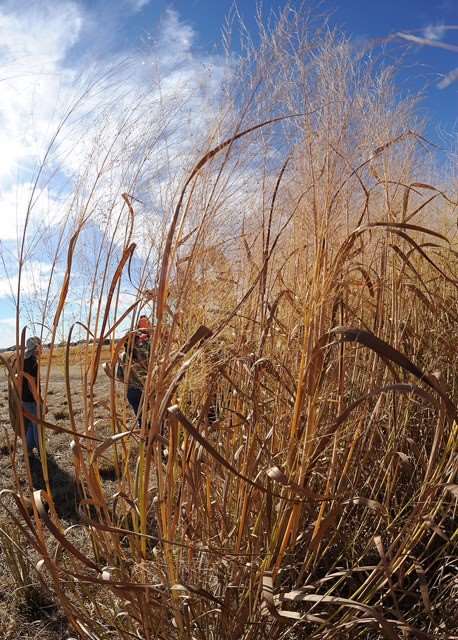
Vehicles have engines powered by liquid fuels, like gasoline and diesel. Oklahoma, and the entire United States, already has the infrastructure and pipelines in place for fuel delivery.
With this as a backdrop, and the fact Oklahoma is rich in biomass resources, it is logical to utilize the systems already in place to produce liquid fuels more efficiently and sustainably. Researchers in Oklahoma State University’s Biobased Products and Energy Center have followed this logic with a U.S. Department of Agriculture-National Institute of Food and Agriculture grant through the South Central Sun Grant Program.
Ajay Kumar, associate professor of biosystems and agricultural engineering, and Allen Apblett, professor of chemistry, joined forces to demonstrate the proof-of-concept of a novel natural gas-and-biomass-to-liquids technology that uses biomass, such as switchgrass and Eastern redcedar, with methane to produce liquid fuels compatible with existing infrastructure.
“The goal of this research is to convert agricultural wastes, biomass and natural gas into liquid fuels that can be used as transportation fuel in cars, trucks and planes,” said Kumar. “The agricultural industry, natural gas producers, municipalities and industry that generate carbon-containing wastes will benefit by converting these into high-value liquid fuels.”
Traditionally, upgrading of liquid products from biomass involves extensive hydrotreating, which is a refinery process designed to optimize fuel performance and maximize stability. This process is energy intensive and costly.
The new technology developed at OSU simplifies that process and results in a product comparable to petroleum fuels. A major differing factor is the new process starts with natural gas and biobased wastes.
“This is important because wastes and natural gas are more readily and cheaply available in Oklahoma, the U.S. and several other countries around the world,” said Kumar. “At the same time, the availability of liquid transportation fuel is limited and comparatively expensive.”
Another added benefit is a reduction in the carbon footprint.
Click here to see more...